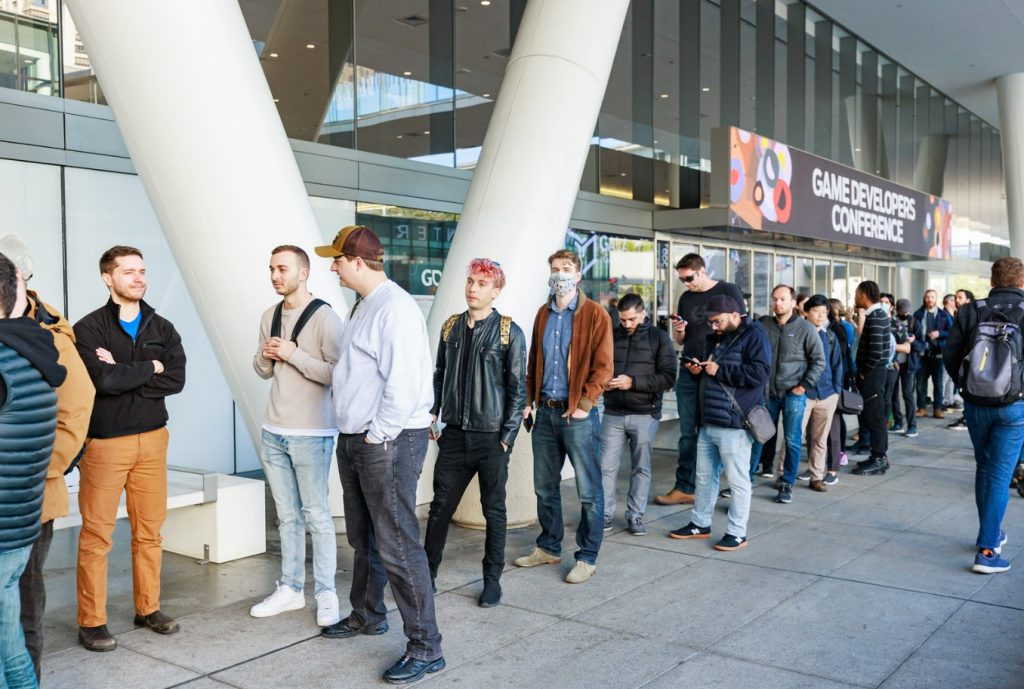
Game Developer Conference begins on Monday, March 21, running through the whole week. It’s an enormous buffet of panels and presentations that seeks to cater to every need, for people who live and work in the game industry.
For us at GameDaily, there is no shortage of options relating to our area of interest; the game industry’s future in terms of business, technology, culture, employment, and consumer-driven trends.
A special GDC track running on Monday and Tuesday – called Future Realities Summit – features more than a dozen sessions with an emphasis on metaverse and virtual reality. Apart from their individual usefulness, they are also a snapshot of the GDC organizers’ current take on topics that are most likely to attract the interest of attendees, and by implication, areas of greatest concern for game industry professionals.
Here are five sessions from the Future Realities Summit that catch the eye.
Building Better Digital Ethics and Laws: Meatspace meets Metaverse
The first session gets straight into some of the most perplexing problems facing gaming. In the real world, we live in communities in which long standing laws and customs are widely understood. But in digital spaces, we bounce from one game world to another, most of which have their own rules laid down in T&Cs and in codes of conduct.
If and when metaverse worlds emerge that encompass broad, international participation, they will need to create legal frameworks that are understood, almost intuitively, by participants, as being just and enforced. As in the real world, “laws” need to be widely viewed as beneficial to the community, even if they sometimes deprive individuals of absolute freedom to behave as they please.
Technology lawyer Ryan Black leads this panel alongside Harvard University metaverse governance expert Micaela Mantegna, and international property law professor Gaetano Dimita. The session’s takeaway promises that attendees will learn the “many legal and ethical issues” that need to be resolved “to ensure we have the metaverse we want”.
Games have a long history of exclusion that’s only recently been widely recognized as offensive and harmful. As metaverse and VR technology improves, so too does the potential for developers to offend and frustrate audiences, or to embrace inclusivity.
Roblox senior design manager Dino Ignacio’s long career in gaming includes leading the Avatar Design team across Facebook. His presentation poses the question: “How might we make safety and inclusion a key part of avatars across all of our products?”
Designing a More Immersive AR Strategy Game…
Table Trenches from DB Creations is a smartphone AR game that transforms a regular table into a battlefield, complete with landscape features, defensive towers, and attack units.
In this session, company co-founders Dustin Kochensparger and Blake Gross will share some of the lessons they’ve learned creating the game, with an emphasis on technical challenges, and onboarding players.
According to the takeaway advice, attendees will learn about “AR game fundamentals, platform specific strategies, and design principles” for AR games on mobile.
The term Extended Reality (XR) covers the gamut of emerging platforms, including VR and AR, as well as yet-to-be invented techs. This session is aimed at anyone who is interested in transferring their own skills in game development to an XR-related career, or to specific projects.
Presenter Dana Ware is creative director at VR company The Void. Her experience includes creating VR experiences, location based experiential VR, and simulation rides. Attendees will learn “specific examples of skills needed to set yourself apart in a quickly evolving field”.
Kids and XR: Leveling up While Playing It Safe
Oculus Quest 2 has reportedly sold more than 20 million units, while Sony just launched PlayStation VR2 to generally positive reviews. Many of these VR headmounted units are being used, happily, by children. Yet with such a new gaming platform – one that includes physical movement, as well as fully encompassed fantasy experiences – are we doing enough to check long-term effects?
Kimberly Hieftje and Asher Marks are co-founders and co-directors at XRpeds, a unit within the Department of Pediatrics at the Yale School of Medicine, which has an aimed mission to “provide effective and safe XR applications for youth”.
This session’s brief points out that “the impact of the long-term use of head-mounted displays (HMDs) in young people are still unknown and research is lacking,” adding that attendees will learn “how young people may benefit from the use of XR in health and clinical applications, as well as consider the safety pitfalls in creating these immersive experiences”.
Meantime, for those attending the San Francisco event, the organizers have posted this useful conference overview, as well as tips for getting the most out of a notoriously frenetic week.
Colin Campbell has been reporting on the gaming industry for more than three decades, including for Polygon, IGN, The Guardian, Next Generation, and The Economist.
 GameDaily.biz © 2026 | All Rights Reserved.
GameDaily.biz © 2026 | All Rights Reserved.